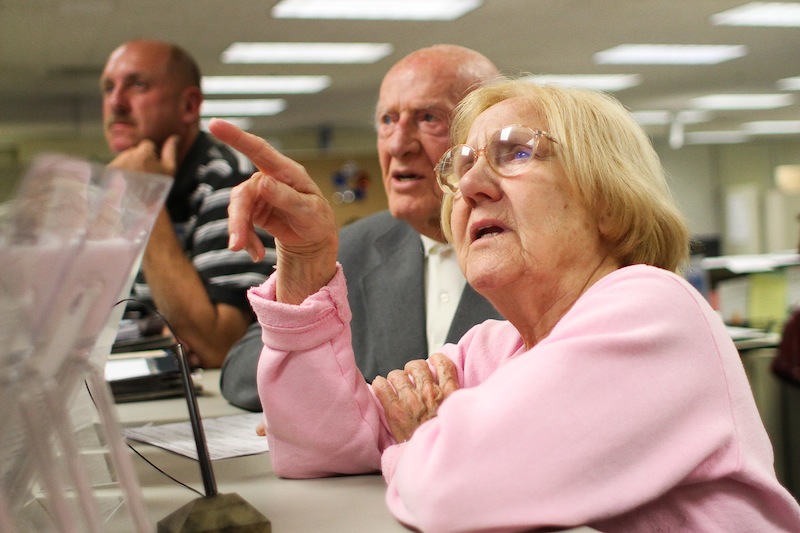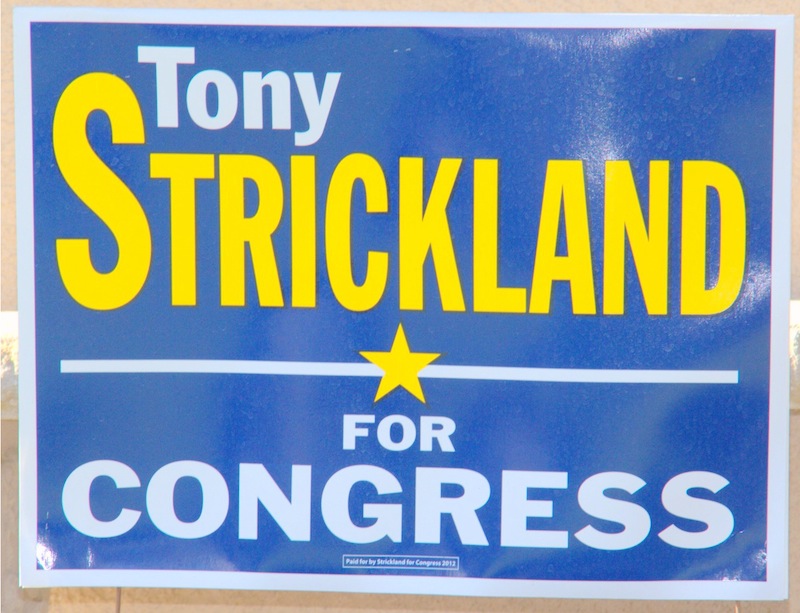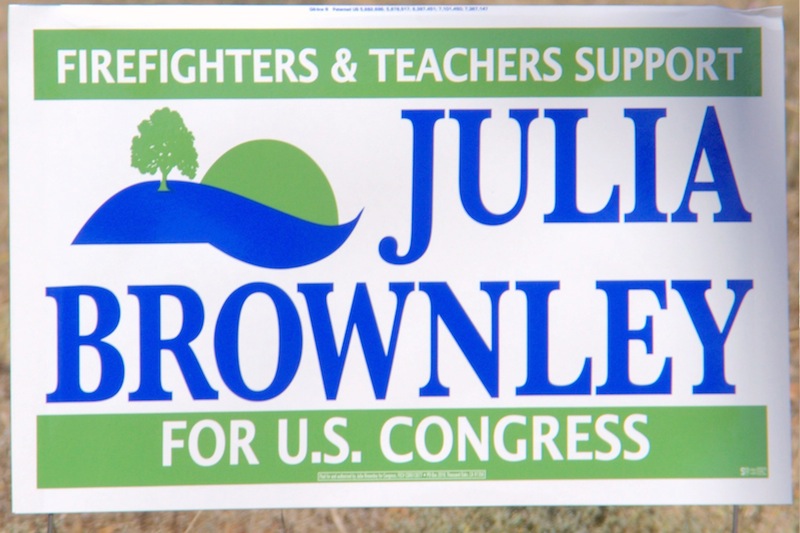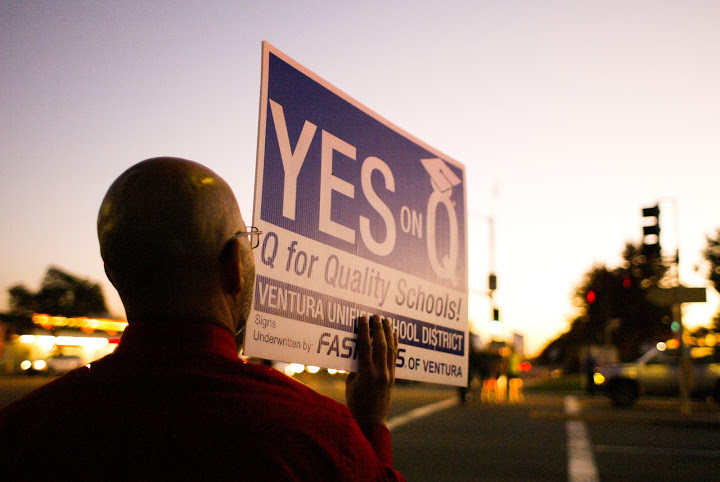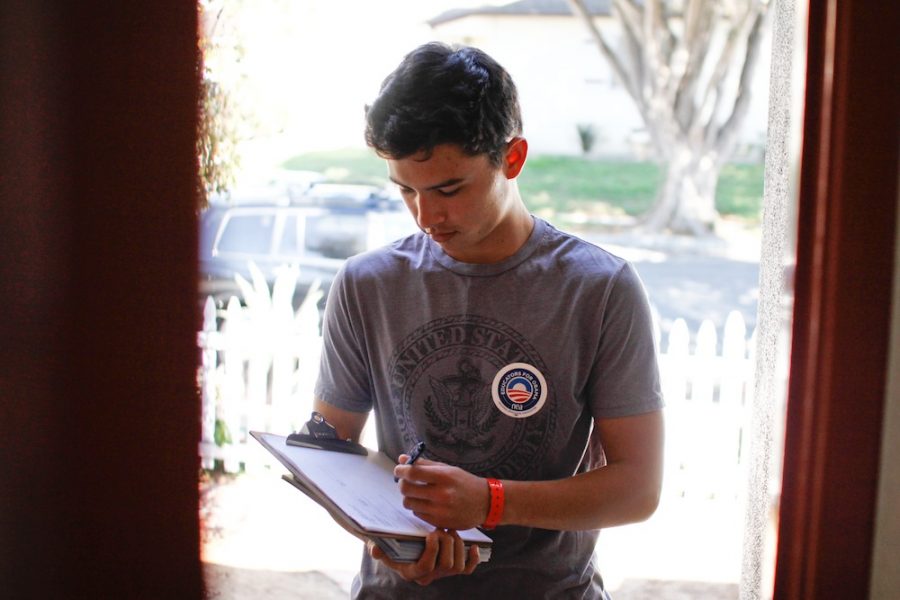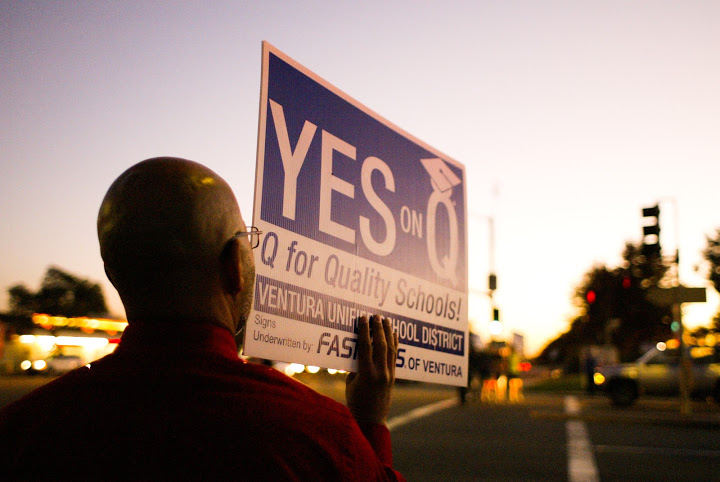
Staff and students of the Ventura Unified School District rejoiced Wednesday morning after learning that school funding measure Proposition 30 had barely passed and that Measure Q will most likely be approved.
Prop. 30 and Measure Q will increase taxes in order to raise funding for public schools, which have lost millions of dollars over the last few years.
“If it didn’t pass it would have been an $8 million cut to our school district,” said Mika Anderson, Foothill science teacher, about Prop. 30. “That would have meant that we would have let go of 100 employees, mostly teachers, going back to teachers in the district who have been working since the year 2000. These are people with families and kids.”
Proposition 30 will affect California students enrolled in kindergarten through college and will raise state sales tax by a quarter of a cent, making the California sales tax seven and a half cents for every dollar. There will also be an increase in income taxes for families that earn more than 250,000 dollars annually. The passing of this proposition spared Ventura Unified School District of being cut $8 million.
“Luckily Proposition 30 will maintain our current level, and hopefully it will prevent us from getting immediate future cuts, because we really can’t take it,” health and geography teacher Kurt Miller said. “In order to provide an adequate education, we can only cut so much.”
Measure Q, which applies only to Ventura residents, enforces a $59 parcel tax, which will be used over the next four years towards academic and art programs. In order to keep class sizes at their current levels and to maintain science, math, reading, and art programs, $2.7 million will be generated in the district annually.{sidebar id=62}
“It will prevent the hike in class sizes, the class sizes will hopefully go down, and we can hopefully hire more teachers because that process has been on freeze for the most part,” U.S History teacher Claire Adams said.
At the state level, Proposition 30 passed with 54 percent of the vote. But, Ventura County as a whole voted 49 percent, nearly defeating the passing with 51 percent against the proposition. Measure Q needed 66.7 percent to pass, and just skimmed by with 67.1 percent. Because the numbers for Q are so close, it cannot officially be called until all of the absentee ballots have been counted, but many VUSD members are confident that it will pass.
Literature teacher Melanie Lindsey attended a meeting in which Superintendent Trudy Arriaga presented the negatives to Proposition 30 not passing.
“If Prop 30 did not pass, one of the things we would have to do was implement more furlough days,” Lindsey said. “If it stayed as it was with the funding we were going to get if the prop didn’t pass, kindergarteners that are in kindergarten now would end up with a year less school than a kid who’s graduating now.”
Jennifer Kindred, who teaches English and advises Foothill’s Speech and Debate Team, estimated that over the course of the past 20 or so years that she has been teaching, she has spent over $20,000 on teaching materials, textbooks, and the speech and debate team. She has personally bought novels and play scripts. At home, her husband has spent time and money to build stage sets for her drama productions. She has also paid for entry fees and hotel fees for students that could not afford it.
“While many of us are lucky to have very supportive parents who donate money and help with fundraisers, parents are not the only ones keeping public schools afloat. Teachers are subsidizing their classrooms. I am subsiding my classrooms, and I have been doing so for years,” Kindred said.
Just like Kindred, teachers and coaches throughout the district say they spend their own money on materials and sports teams. The money that is needed for these expenses has been cut, and every year the teachers and coaches give up extra time and their own personal money to support the students so that they have the opportunity to participate in extracurricular actives and get a good education.
With budget cuts, the district would not have had the money to pay teachers and administrators for as many days, resulting in adding more furlough days to the school year.
“The most important piece is that we will have an extended school year, which means students can get more learning done, more curriculum can be taught,” science teacher Anderson said. “Ultimately, if you look at students having more days at school, they are going to be more equipped with knowledge that they’re going to be able to use.”
Senior Stephen Mariani fully supported both Measure Q and Prop. 30.
“Education is looking up and we have high hopes for the future, so I think we will not have anymore cuts to the school year,” Mariani said. “I don’t know if we will get back any furlough days, but that would be great.”
Along with adding furlough days and reducing the number of teachers in the district, there was a possibility that student necessities, like transportation and extracurricular activities, would be cut as well.
“Transportation is not state mandate, but in our district, because we have magnet schools, having the ability to pick up kids from another boundary school to our school is possible because we can afford transportation,” Linda Kapala, head of the media center, said. “All that would have been on the cutting board.”
According to Kapala, classes that were not a part of the A-G requirements and had a low class enrollment were subject to being cut as well. As an entrance requirement, the University of California system requires a number of courses in various subjects categorized as A-G.
“Because of the ACLU lawsuit, hopefully some of the money will go towards extracurricular activities,” Adams said.
With the passing of Measure Q, there is a possibility that more opportunities will be available to use technology.
“We have potential to expand our technological resources, which I would be really interested in helping with and implement,” Miller said.
Measure Q committee chair Kay Giles was unsure if it was possible to pass the measure, and was thankful that Ventura residents, those who had kids in the school district and those who didn’t, had voted in favor of it.
“I’m really, really gratified that the citizens of this town realize how important it is to have good schools,” she said. “It strengthens our whole community to have good schools, it strengthens our property values. We need you to be well-educated to be our future workers… it’s a safer community when the students are all learning and engaged… it just makes sense that the better the schools are, the safer the community is… it’s better for all of us, whether or not you have kids in our schools.”
Editor’s note: Staff writer Lucas Wiltjer contributed to the reporting of this article.


